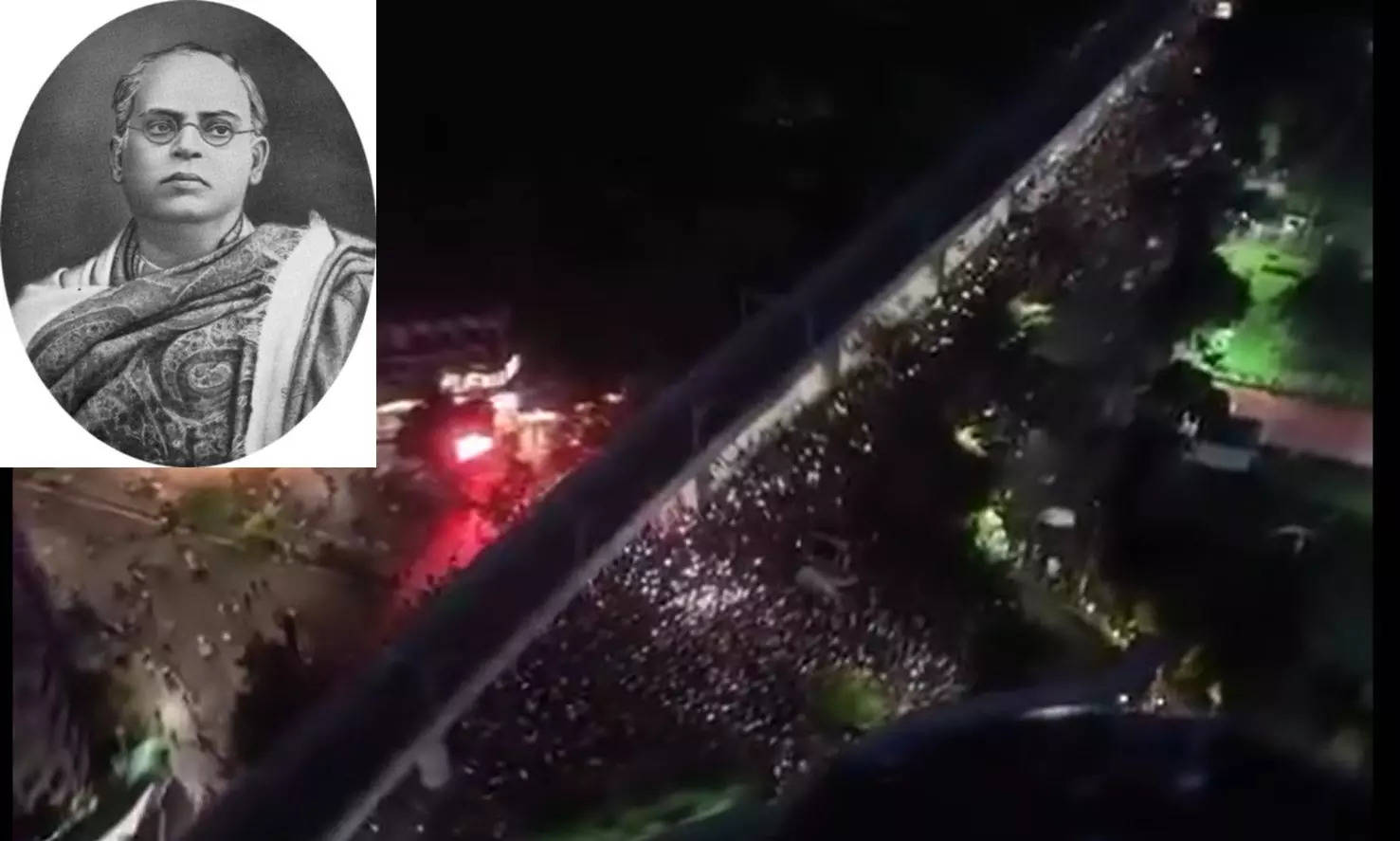[ad_1]
a Hindu pre-partition poet, musician and playwright, who’s equally standard in each Bengals.
As Salil Tripathi writes in International Coverage: “The tune accompanying many movies of the protests final week was from the pre-Partition poet Dwijendralal Ray, a Hindu, celebrating the golden land of Bengal. To see Bangladesh in binary phrases—of Muslim or not Muslim—reveals a profound misreading of a posh society.”
Dhana Dhanya Pushpa Bhara is a patriotic tune by DL Ray that celebrates the pure magnificence, cultural richness, and deep emotional connection to the poet’s homeland. The tune vividly describes the land’s abundance, with its fertile fields, light rivers, and harmonious nature, portraying it as a utopia. It expresses a profound love and satisfaction for the nation, emphasizing the distinctive bond between the land and its folks. The tune resonates deeply in Bengali tradition, significantly in Bangladesh, capturing the essence of nationwide satisfaction and the enduring love for the motherland.
Who was DL Ray?
DL Ray was a famend Bengali poet, playwright, and musician, broadly celebrated for his contributions to Bengali literature and music. Very similar to Rabindranath Tagore’s songs are known as Rabindrasangeet, DL Ray’s songs had been christened Dwijendrageeti. Born on July 19, 1863, in Krishnanagar, Bengal Presidency (now in West Bengal, India), Ray was the son of a well-educated household. His father, Kartikeychandra Ray, was a Deputy Justice of the Peace, and his mom, Prasannamayee Devi, was additionally recognized for her literary pursuits.
Dhana Dhanya Pushpa Bhara by Lopamudra Mitra
Ray confirmed an early aptitude for literature and music. He pursued his training in Kolkata and later went to England, the place he earned a level in agriculture from the College of Edinburgh. Upon returning to India, he took up a authorities job, however his ardour for literature and music remained undiminished.
Banga Amar Janani Amar | Subhas Chandra | Bengali Film Tune | Tarun Bandyopadhyay
Ray was very moved by the Swadeshi motion when Lord Curzon determined to partition Bengal in 1905. He actively participated within the protest rallies, his highly effective voice resonating with the mantra of Vande Mataram. Throughout this era, he wrote historic performs like Rana Pratap Singh (1905), Durgadas (1906), and Mewar Patan (1908), which had been infused with patriotic fervor and resonated deeply with Swadeshi activists. Nonetheless, in Mewar Patan, Roy’s expression of patriotism was not characterised by outright hostility in the direction of international influences. By the point he wrote this play, Roy had grown weary of the militant nationalism of some Swadeshi activists. As his son, Dilip Kumar Roy, famous, “It was at this turning level in his life that he wrote The Fall of Mewar. And it was solely then that we, his devoted admirers, realized that patriotism could possibly be a deceptive information.”
Dwijendralal Ray handed away on Might 17, 1913, however his legacy lives on. He’s finest recognized for his patriotic songs, which earned him the title of Deshbandhu (Pal of the Nation). His compositions typically mirrored the socio-political context of his time, and he used his literary expertise to encourage a way of nationwide satisfaction and unity amongst Bengalis. Ray’s performs, similar to
Sita
and
Rana Pratap Singh
, are additionally extremely regarded for his or her historic themes and poetic model.
Along with his patriotic songs, Ray composed many devotional and romantic songs, collectively often known as Dwijendrageeti. These songs are nonetheless sung in the present day and are cherished for his or her lyrical magnificence and melodic richness. Ray’s contribution to Bengali music and literature can also be celebrated in Bangladesh, the place his songs are a part of the cultural material, carried out at varied nationwide and cultural occasions. His works are taught in colleges, and his songs are sometimes included within the repertoire of classical and up to date musicians alike.
[ad_2]
This Submit could include copywrite



